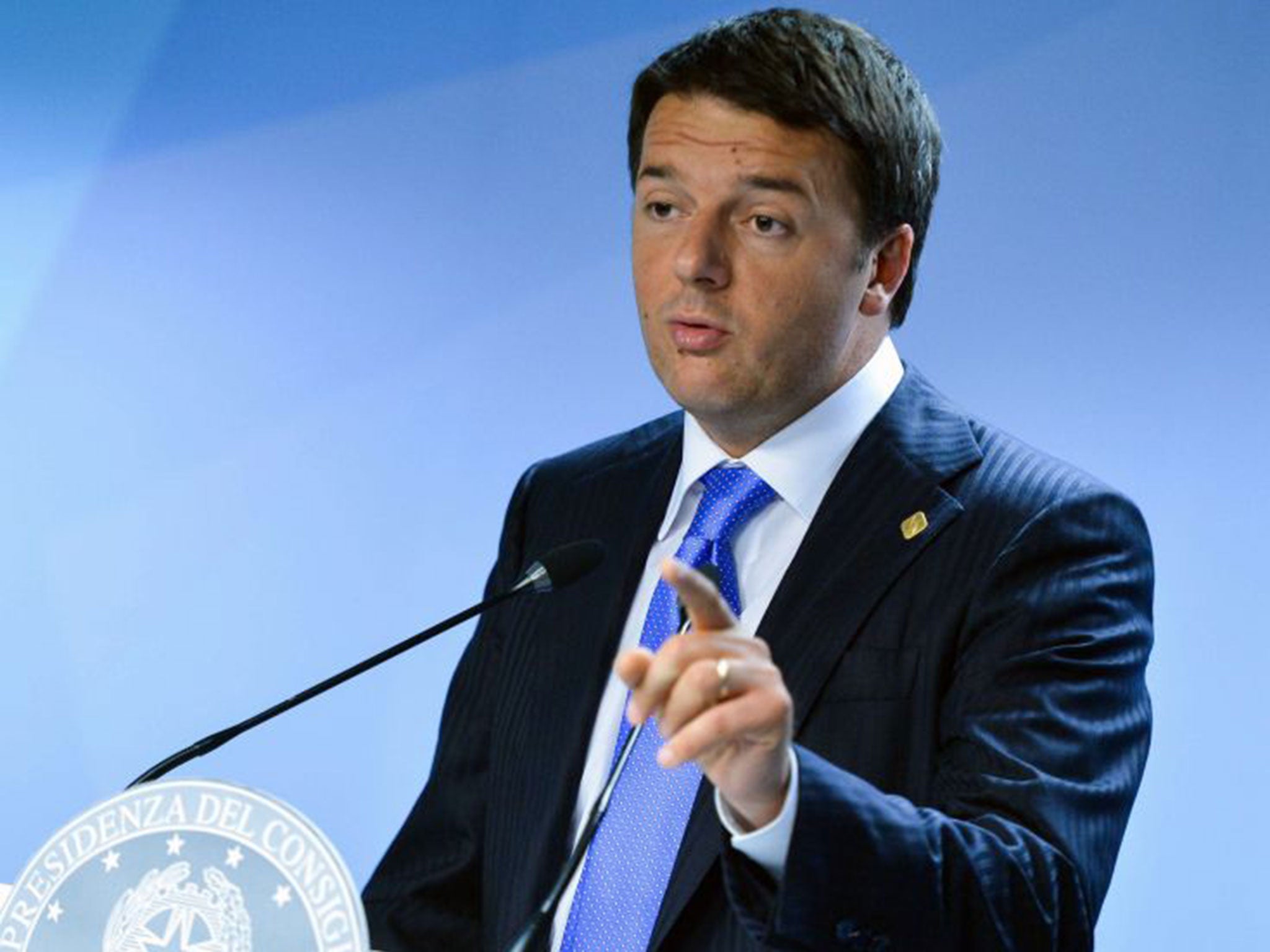Matteo Renzi’s corruption fighting cred in question over new ENI investigation in Italy

Your support helps us to tell the story
From reproductive rights to climate change to Big Tech, The Independent is on the ground when the story is developing. Whether it's investigating the financials of Elon Musk's pro-Trump PAC or producing our latest documentary, 'The A Word', which shines a light on the American women fighting for reproductive rights, we know how important it is to parse out the facts from the messaging.
At such a critical moment in US history, we need reporters on the ground. Your donation allows us to keep sending journalists to speak to both sides of the story.
The Independent is trusted by Americans across the entire political spectrum. And unlike many other quality news outlets, we choose not to lock Americans out of our reporting and analysis with paywalls. We believe quality journalism should be available to everyone, paid for by those who can afford it.
Your support makes all the difference.It's nearly time for the Sirocco to blow its wet and windy way through the Italian peninsula
Just so, the country's new Prime Minister, Matteo Renzi, hoped to sweep through the cobwebbed and corrupt political and business oligarchy that has controlled Italy since the days of Giulio Andreotti.
Mr Renzi swept into office in February, immediately ordering the sale of 1,500 luxury official cars, including nine Maseratis and two Jaguars, before kicking out the overly comfortable bosses of no fewer than five state-owned companies. At three of them, he put women in the chairmanship. It was unprecedented.
One such company was ENI, a state-controlled oil and gas company, where he kicked out Paolo Scaroni, the long-term chief executive fighting allegations of environmental crime and corruption, and replaced him with the company's exploration boss Claudio Descalzi.
The oustings were extremely bold, and left the cosy business world winded. But did the youthful Mr Renzi hunt wide enough to find new blood for the oil group? Perhaps not. For, on Thursday this week, just four months after Mr Descalzi's appointment, ENI disclosed that he too was under investigation for corruption.
The alleged scandal was not a new one. It involves allegations of bribery in ENI's purchase of exploration rights off the coast of Nigeria in 2011. ENI and Mr Descalzi deny wrongdoing, but the allegations keep coming. Juicier claims and counter-claims were this week being plastered over the pages of the Italian press, but perhaps more interesting has been the response of the PM.
For, rather than using his new-broom status sternly to condemn corruption and declare that he will fire Mr Descalzi on the spot if he is found to have done wrong, Mr Renzi yesterday gave him his full support, tweeting: "I'm glad I chose Claudio Descalzi as CEO of ENI. I would do it again tomorrow morning. I respect the investigation and appearance judgments."
The anti-corruption campaigners at the Re:common pressure group, who have always urged against Mr Descalzi's appointment, say this was odd. Because, back in the spring, Mr Renzi had attempted to force ENI and other state- owned firms to accept "honourability criteria" - a binding anti-corruption code of conduct on executives. ENI's other powerful interests successfully, humiliatingly, overruled him.
So surely yesterday, rather than tweet his support of Mr Descalzi, Mr Renzi could have issued a more robust tweet condemning corruption and declaring that, if Mr Descalzi were found to be in the wrong, he would be dismissed. Or he could have done an "I told you so" about the need for honourability criteria.
Instead, after giving him such strong support yesterday, if the ENI boss's behaviour is found lacking in the investigation then the Prime Minister is left looking badly compromised.
ENI is so powerful in Italy that it is known as the "state within a state". Could it be that Mr Renzi has been quietly told by the company's powerful leaders that, at a difficult time for the nation's Russia-dominated energy supplies, he should back off?
Join our commenting forum
Join thought-provoking conversations, follow other Independent readers and see their replies
Comments